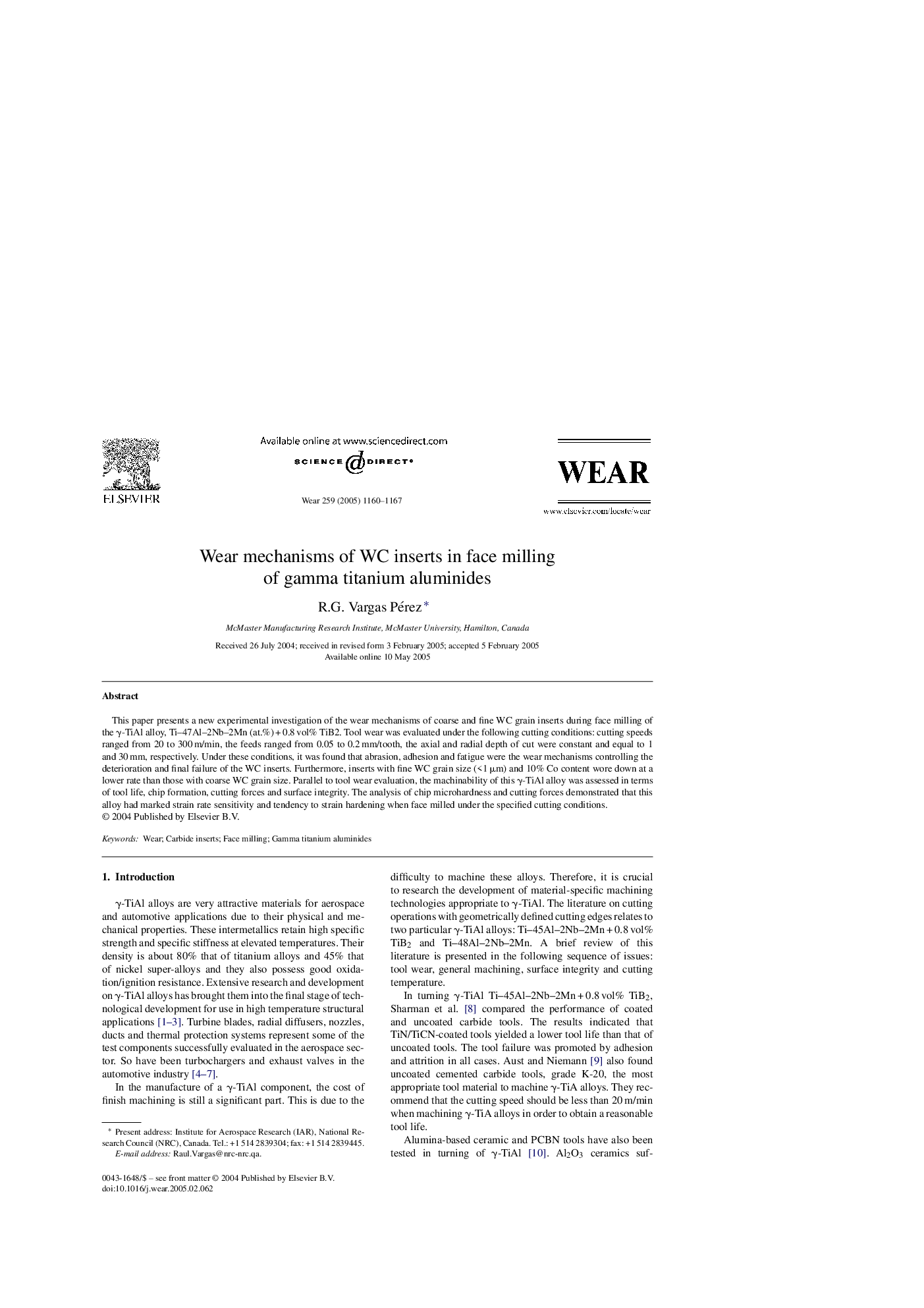| Article ID | Journal | Published Year | Pages | File Type |
|---|---|---|---|---|
| 9679338 | Wear | 2005 | 8 Pages |
Abstract
This paper presents a new experimental investigation of the wear mechanisms of coarse and fine WC grain inserts during face milling of the γ-TiAl alloy, Ti-47Al-2Nb-2Mn (at.%) + 0.8 vol% TiB2. Tool wear was evaluated under the following cutting conditions: cutting speeds ranged from 20 to 300 m/min, the feeds ranged from 0.05 to 0.2 mm/tooth, the axial and radial depth of cut were constant and equal to 1 and 30 mm, respectively. Under these conditions, it was found that abrasion, adhesion and fatigue were the wear mechanisms controlling the deterioration and final failure of the WC inserts. Furthermore, inserts with fine WC grain size (<1 μm) and 10% Co content wore down at a lower rate than those with coarse WC grain size. Parallel to tool wear evaluation, the machinability of this γ-TiAl alloy was assessed in terms of tool life, chip formation, cutting forces and surface integrity. The analysis of chip microhardness and cutting forces demonstrated that this alloy had marked strain rate sensitivity and tendency to strain hardening when face milled under the specified cutting conditions.
Related Topics
Physical Sciences and Engineering
Chemical Engineering
Colloid and Surface Chemistry
Authors
R.G. Vargas Pérez,
